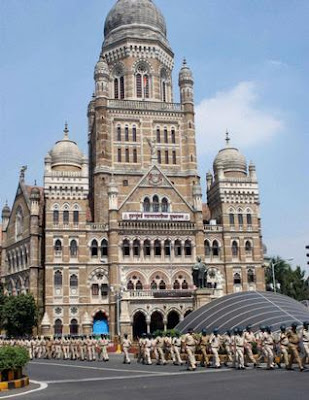Ayodhya verdict: Disputed land to be divided into 3 parts.
Allahabad High Court News Updates! The Lucknow Bench of the Allahabad High Court on Thursday ruled by majority that the disputed land in Ayodhya be divided into three parts to be distributed among the Sunni Waqf Board, and the party for 'Ram Lalla', said lawyers.
The site of the Ram lala idol to Lord Ram, Nirmohi Akhara gets gets Sita Rasoi and Ram Chabutara and Sunni Wakf Board gets the rest. Status-quo has to be maintained for three months, says BJP's Ravi Shankar Prasad.
More details are awaited.
The bench comprised of Justices D V Sharma, Sudhir Agarwal and S U Khan. The only hurdle in the pronouncement of the verdict was cleared by the Supreme Court Tuesday when it dismissed the petition by a retired bureaucrat Ramesh Chandra Tripathi for deferment of the keenly-awaited judgement.
The first title suit in the case was filed in 1950 by one Gopal Singh Visharad, seeking an injunction for permitting 'pooja'(worship) of Lord Ram at the disputed site while the second suit was filed by Paramhans Ramchandra Das also in 1950 seeking the same injunction but this was later withdrawn.
The third suit was filed in 1959 by the Nirmohi Akhara, seeking direction to hand over the charge of the disputed site from the receiver and the fourth one came in 1961 by UP Sunni Central Board of Waqfs for declaration and possession of the site.
The fifth suit was moved on July one, 1989 in the name of Bhagwan Shri Ram Lalla Virajman also for declaration and possession.
Through an application moved by then Advocate General of UP, all the four suits were transferred to the High Court in 1989.
As many as 94 witnesses have appeared before the Court -- 58 from Hindu side and 36 from Muslim side -- during regular hearings of the case which began on January 10, 2010.
The High Court, while adjudicating the case, also asked the Archaeological Survey of India (ASI) to carry out excavation in the area surrounding the disputed site to find out whether temple was there before mosque was built.
The excavation, which was done in the presence of representatives from Hindus and Muslims, went on for more than five months between March and August in 2003.
Hearing in the case taken up on a day-to-day basis from January this year was completed on July 26 and the special bench had reserved its verdict asking the parties concerned to approach the OSD in case there was any scope of resolution to the case through reconciliation.
Since none of the parties made any attempt in this direction, the court had on September 8 fixed September 24 as the date for pronouncement of the verdict. It was fixed for September 30 after the apex court dismissed a plea for deferment of the High Court verdict
The history of the dispute goes back to the year 1528 when a mosque was built on the site by Mughal emperor Babar which Hindus claim to be a birth place of Lord Ram and where a temple was there earlier.
In order to settle the dispute, the British officials in 1859 erected a fence to separate the places of worship, allowing the inner court to be used by Muslims and the outer court by Hindus and this system went on till 1949 when an idol of Lord Ram surfaced inside the mosque.
The authorities then declared the premises a disputed area and locked the gates which were unlocked after 37 years by a District Judge in 1986 to allow 'darshan'.
With the passage of time, the dispute took political colour. The was demolished in 1992 in the presence of senior leaders of VHP, Shiv Sena and BJP.
The demolition of the mosque triggered communal riots in several parts of the country in which more than 2,000 lives were lost.
Earlier this month, R C Tripathi, one of the parties to the suit, moved a plea in the High Court seeking deferment of the verdict to make fresh attempts for an out-of-court settlement through negotiations.
On September 17, the High Court refused to defer pronouncement of the verdict following which the matter reached the Supreme Court.
An apex court bench of Justices Altamas Kabir and A K Patnaik refused to take up the case and referred it to another bench.
Difference of opinion between two Justices R V Raveendran and H L Gokhale, before whom the matter came up for hearing on September 23, surfaced on entertaining the petition. However, the court issued notices to the parties.
The matter was finally head by a special three-judge bench headed by Chief Justice of India S H Kapadia om Tuesday and it dismissed the plea for deferment of the verdict by the High Court.
Ayodhya verdict: Sunni Waqf Board to appeal in Supreme Court
The Sunni Waqf Board says it will appeal in the Supreme Court against the Ayodhya verdict delivered today in Lucknow.
The Allahabad High Court has ruled that the disputed land should be divided three ways. The land has been divided between the Hindus and the Muslims (one-third for the Waqf Board, a third for Ram Lalla, and a third for the Nirmohi Akhara).
The Waqf board - one of the main litigants - says it doesn't agree with the decision.
The judgement says that the disputed site is the birthplace of Lord Ram and that the portion below the central dome under which idols are placed is allotted to Hindus.


















